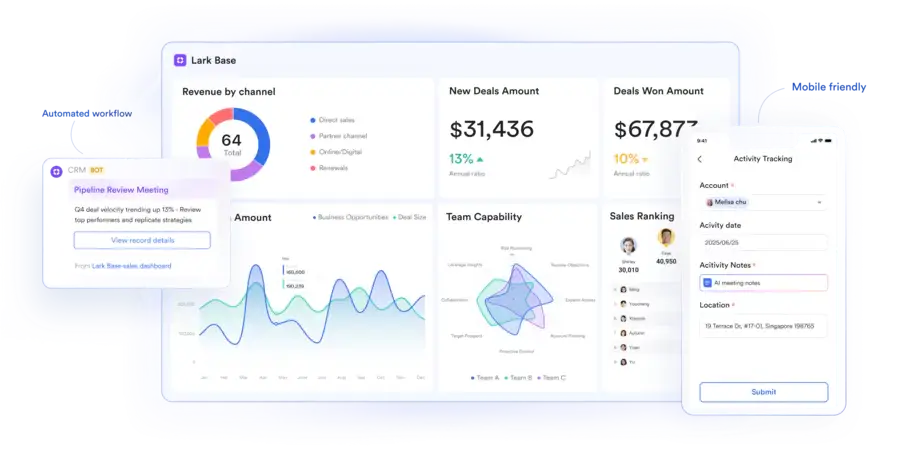Generative AI startups raised an unprecedented $110 billion in venture capital during 2024, with mega-rounds from xAI and Anthropic leading the charge. Last month, xAI and Anthropic raised a combined $9 billion as AI funding remained red-hot, while seven AI funding rounds exceeded $1 billion in 2024, demonstrating the sector’s extraordinary momentum and investor confidence.
Executive Summary: The generative AI funding landscape reached historic highs in 2024, with mega-rounds fundamentally reshaping venture capital allocation and startup valuations. The US dominated global AI venture capital in 2024, securing 74% of total funding, while sophisticated investor strategies focused on foundational models, AI infrastructure, and application-layer innovations. Despite unprecedented capital availability, scaling challenges around compute costs, talent acquisition, and regulatory compliance are emerging as critical determinants of long-term success.
Record-Breaking Mega Rounds Reshape Market Dynamics
The generative AI funding boom reached unprecedented scale in 2024, with individual rounds reaching valuations that dwarf entire traditional sectors. xAI raised $5 billion in a funding round valuing it at $50 billion, with investment from Qatar Investment Authority, Valor Equity Partners, Andreessen Horowitz and Sequoia Capital, while Anthropic is nearing the close of a new $5 billion funding round that would value it at a staggering $170 billion.
These outsized valuations reflect investor conviction in foundational AI models’ transformative potential across industries. Global venture funding in 2024 reached close to $314 billion — compared to $304 billion in 2023 — up around 3%, based on analysis of Crunchbase data, with AI representing the primary growth driver in an otherwise flat venture market.
The concentration of capital in mega-rounds signals a fundamental shift toward winner-take-most market dynamics. Elon Musk’s xAI raised a behemoth $6 billion round, one of seven AI funding rounds over $1 billion in 2024, just months after OpenAI raised its $6.6 billion round, demonstrating the extraordinary capital requirements for competing in foundational AI model development.
Strategic investor participation has become increasingly sophisticated, with sovereign wealth funds, technology giants, and specialized AI investors forming complex consortium structures. The Qatar Investment Authority’s participation in xAI’s funding exemplifies how geopolitical considerations are influencing AI investment strategies and capital allocation decisions.
Market timing has proven critical for fundraising success, with companies capitalizing on AI momentum to secure premium valuations and favorable terms. The generative AI bubble didn’t burst in 2024, according to data from financial trackers, enabling aggressive pricing strategies that prioritize market capture over traditional valuation metrics.
Venture Capital Strategy Evolution Targets Infrastructure and Applications
Sophisticated venture capital firms are implementing differentiated investment strategies that span the AI value chain from foundational infrastructure to specialized applications. Artificial intelligence is seeing targeted investment in specific use cases that promise immediate impact, such as healthcare diagnostics, urban infrastructure, and supply chain optimization, reflecting investor focus on measurable business value rather than pure technology innovation.
- Infrastructure-First Investment Approach:AI infrastructure is one of the key investment areas in 2024: As AI models demand increasing computing power, VCs are pouring resources into AI infrastructure, including specialised chips and data centers. This strategic focus recognizes that sustainable competitive advantages require proprietary hardware and computing capabilities rather than software differentiation alone.
- Stage-Specific Capital Allocation:Seed deal sizes increased by 35%, while early-stage investments grew, indicating renewed confidence in emerging AI startups beyond established players. Seed deals constituted 32% of the total AI fundraising deals between 2015 and 2024, proving that the AI ecosystem is in its formative era.
- Value Creation Beyond Funding:Leading VCs are providing comprehensive support ecosystems including technical expertise, regulatory guidance, and strategic partnership facilitation. These value-added services become increasingly critical as AI startups navigate complex scaling challenges and competitive positioning decisions.
- Portfolio Construction Strategies:Sophisticated investors are building diversified AI portfolios that span model development, infrastructure, tooling, and vertical applications. This comprehensive approach mitigates concentration risk while capturing value across the entire AI ecosystem transformation.
- Due Diligence Evolution:Traditional financial and market analysis frameworks are being supplemented with technical architecture assessment, AI talent evaluation, and regulatory compliance review. These enhanced evaluation processes reflect the unique challenges and opportunities inherent in AI startup investing.
Global Innovation Hotspots Drive Competitive Positioning
Geographic concentration of AI innovation and investment reveals strategic patterns that influence startup location decisions, talent acquisition strategies, and market access considerations. The US dominated global AI venture capital in 2024, securing 74% of total funding, with China, the UK, and France trailing far behind, establishing clear competitive advantages for American AI ecosystems.
- Silicon Valley Dominance:The San Francisco Bay Area continues demonstrating unparalleled advantages in AI startup development through dense networks of technical talent, experienced investors, and established technology companies. Access to specialized AI talent, proximity to hyperscale cloud providers, and sophisticated venture capital expertise create self-reinforcing competitive advantages.
- Emerging Competitive Centers:European markets, particularly London and Paris, are developing specialized strengths in AI regulation, ethical AI development, and industry-specific applications. These regional advantages create opportunities for differentiated positioning and market capture in sectors where regulatory compliance and ethical considerations drive purchasing decisions.
- Asia-Pacific Innovation Clusters:Singapore, Tokyo, and Sydney are establishing AI innovation centers focused on fintech, healthcare, and manufacturing applications. Government support programs, university partnerships, and industry collaboration initiatives create favorable conditions for AI startup development and scaling.
- Sector-Specific Geographic Advantages:Financial services AI development concentrates in New York and London, healthcare AI clusters around Boston and Cambridge, while manufacturing AI innovation emerges in Detroit and Stuttgart. These sector-specific concentrations create specialized talent pools and partnership opportunities.
- Regulatory Environment Considerations:Divergent regulatory approaches across jurisdictions influence startup location decisions and market entry strategies. GDPR compliance requirements, AI governance frameworks, and data localization mandates create complex considerations for global AI startup development.
Scaling Challenges Emerge as Critical Success Factors
Despite unprecedented capital availability, AI startups face fundamental scaling challenges that distinguish successful companies from well-funded failures. These operational complexities require sophisticated management capabilities and strategic resource allocation decisions that determine long-term competitive positioning.
- Compute Cost Management:Foundation model training and inference costs create substantial ongoing expenses that scale with user adoption and model complexity. Companies must develop sophisticated cost optimization strategies, including model compression, hardware optimization, and efficient inference architectures that maintain performance while controlling expenses.
- Technical Talent Scarcity:Competition for specialized AI talent has created extraordinary compensation inflation and retention challenges. Leading AI researchers command compensation packages exceeding $1 million annually, while mid-level engineers require premium salaries that strain startup budgets and dilute equity pools.
- Regulatory Compliance Complexity:Evolving AI governance requirements across jurisdictions create compliance burdens that require specialized legal expertise and ongoing monitoring capabilities. Companies must invest in regulatory affairs capabilities while maintaining agility and innovation velocity.
- Data Quality and Availability:High-quality training data has become a strategic differentiator that requires sophisticated data acquisition, cleaning, and management capabilities. Companies must develop proprietary data advantages while navigating complex privacy, licensing, and ethical considerations.
- Model Performance Optimization:Achieving consistently reliable AI model performance across diverse use cases requires extensive testing, validation, and continuous improvement processes. These quality assurance requirements demand significant engineering resources and sophisticated monitoring infrastructure.
- Business Model Validation:Despite impressive technology capabilities, many AI startups struggle to demonstrate sustainable business models with predictable revenue streams and acceptable unit economics. Converting technical innovation into profitable business operations remains the fundamental challenge for commercial success.
Strategic Implications for Enterprise Adoption and Market Evolution
The generative AI funding boom creates profound implications for enterprise technology adoption, competitive dynamics, and market structure evolution across industries. High customer AI adoption, growing innovation in AI hardware, a reduction in the cost of foundation models and the growth of vertical AI in specific industries drive increased investment momentum and market development.
- Enterprise Procurement Strategy Evolution:Large enterprises are developing sophisticated AI vendor evaluation frameworks that assess technical capabilities, financial stability, regulatory compliance, and long-term viability. The abundance of well-funded AI startups creates opportunities for innovative procurement approaches while requiring enhanced due diligence capabilities.
- Industry-Specific AI Solutions:Vertical AI applications targeting specific industry requirements are receiving increased investment attention. Healthcare diagnostics, financial services risk management, and manufacturing optimization represent high-value markets where specialized AI solutions can command premium pricing and achieve sustainable competitive positioning.
- Integration and Interoperability Requirements:As AI solutions proliferate across enterprise environments, integration capabilities and interoperability standards become critical competitive differentiators. Companies developing comprehensive AI platforms with seamless integration capabilities capture sustainable advantages over point solution providers.
- Total Cost of Ownership Considerations:Beyond initial licensing costs, enterprises must evaluate comprehensive AI adoption costs including training, integration, maintenance, and compliance requirements. Vendors providing transparent cost modeling and predictable pricing structures achieve superior customer acquisition and retention results.
Frequently Asked Questions
What drove the record $110 billion in AI venture capital funding during 2024? Global venture capital investment in AI has surged to unprecedented levels, driven by foundational model breakthroughs, enterprise adoption acceleration, and investor confidence in AI’s transformative potential across industries.
Which AI startups received the largest funding rounds in 2024? Elon Musk’s xAI raised a $6 billion round, while OpenAI raised $6.6 billion, leading seven AI funding rounds that exceeded $1 billion and demonstrating unprecedented capital concentration in foundational AI companies.
How do current AI startup valuations compare to traditional technology companies? Anthropic’s potential $170 billion valuation and xAI’s $50 billion valuation exceed many established technology companies, reflecting investor conviction in AI’s market transformation potential.
Which geographic regions dominate AI startup investment? The US secured 74% of total global AI funding in 2024, with China, the UK, and France trailing far behind, establishing clear geographic advantages for AI ecosystem development and startup success.
What are the primary focus areas for AI venture capital investment? VCs are pouring resources into AI infrastructure, including specialised chips and data centers, while targeted investment focuses on specific use cases like healthcare diagnostics, urban infrastructure, and supply chain optimization.
What challenges do AI startups face when scaling operations? Primary scaling challenges include compute cost management, technical talent acquisition, regulatory compliance complexity, data quality requirements, and business model validation beyond impressive technology demonstrations.
How has the AI funding boom affected overall venture capital markets? AI showed the biggest leap in amounts year to year within global venture funding reaching close to $314 billion in 2024, demonstrating AI’s dominant influence on venture capital allocation decisions.
The generative AI funding revolution represents the most significant technology investment wave since the internet boom, creating unprecedented opportunities for innovation while demanding sophisticated strategies for sustainable value creation. As market dynamics continue evolving at breakneck pace, which AI startups will successfully translate massive funding into market-defining competitive advantages?
About the Author: This analysis draws on 15+ years of experience evaluating venture capital trends and technology startup ecosystems. For more insights on AI investment patterns and emerging technology funding developments, follow Global Publicist 24’s comprehensive coverage of venture capital and startup innovation.













